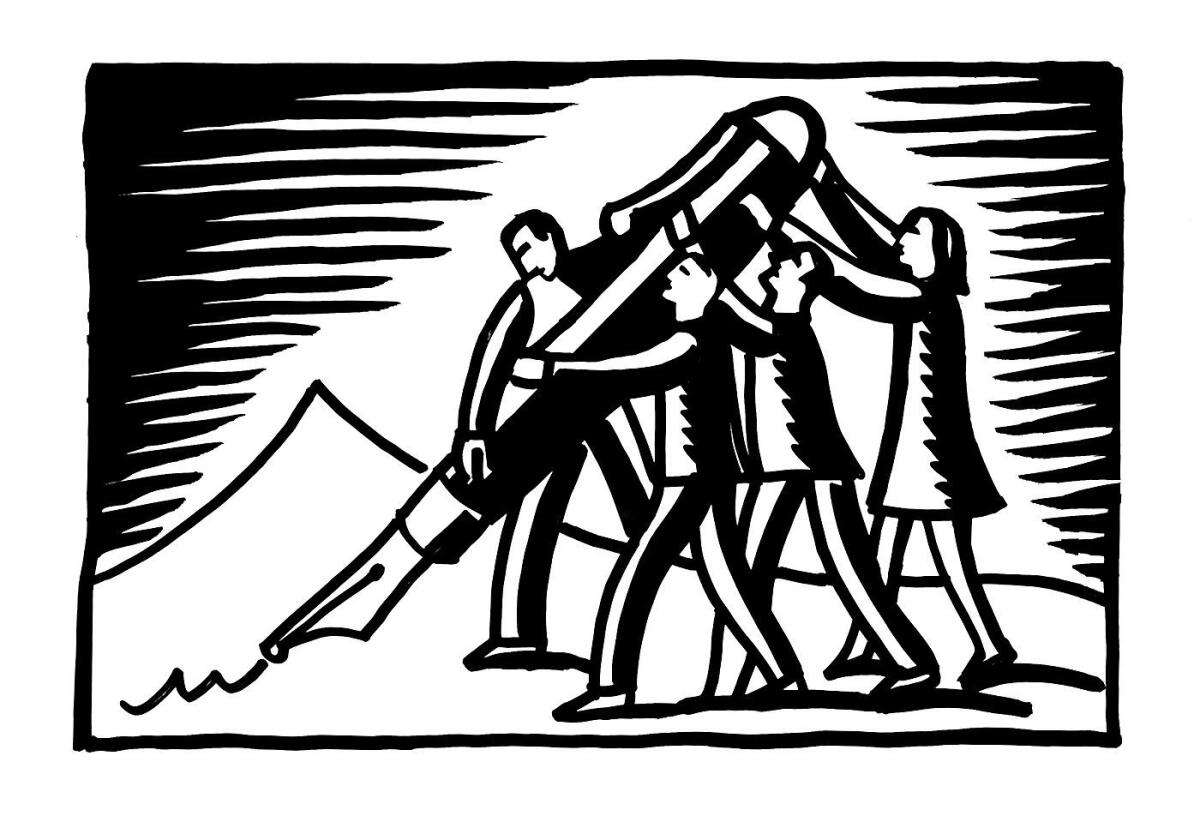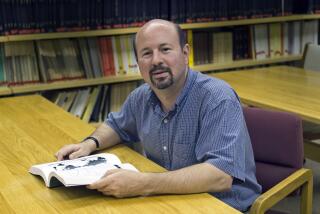Opinion: ‘Hey, Mom, wanna peer-review my research paper?’

One of the supposed strengths of academic publishing is its reliance on a peer-review process. Someone writes a paper or collates research and others in the field assess the work for validity, accuracy and intellectual rigor before a journal publishes it.
In theory, it’s a good way to weed out below-grade work or fraud. Unless, of course, the peer reviews themselves are fraudulent.
Earlier this year a scandal surfaced when the relatively obscure Journal of Vibration and Control announced it would retract 60 articles because, rather than being reviewed by peers, they were vetted by friends and, in at least one case, by the person who wrote the article in the first place. As my colleague Michael Hiltzik pointed out at the time, while the scope of the scandal was unusual, such fraud was not as rare as we would hope.
Now Nature has dived into the issue, concluding that part of the problem stems from weak security, including easily gamed online systems for submitting peer reviews. But many journals also let the authors themselves recommend peers to be approached for reviewing. That’s like letting a defendant hand-pick his own jury.
From the article:
“In the past 2 years, journals have been forced to retract more than 110 papers in at least 6 instances of peer-review rigging. What all these cases had in common was that researchers exploited vulnerabilities in the publishers’ computerized systems to dupe editors into accepting manuscripts, often by doing their own reviews. The cases involved publishing behemoths Elsevier, Springer, Taylor & Francis, SAGE and Wiley, as well as Informa, and they exploited security flaws that — in at least one of the systems — could make researchers vulnerable to even more serious identity theft.”
It’s an issue with some serious ramifications far beyond the sometimes insular worlds of science (have your read the Journal of Vibration and Control?). For instance, one of the main arguments for the reality of global warming as a function of human activity is the overwhelming amount of academic work that says that it is so. But cases of academic fraud undermine public faith in the integrity of what must be independent and evidence-based inquiry.
These journals need to take the fraud problem to heart, and take steps to preserve their credibility.
Follow Scott Martelle on Twitter @smartelle.
More to Read
A cure for the common opinion
Get thought-provoking perspectives with our weekly newsletter.
You may occasionally receive promotional content from the Los Angeles Times.







